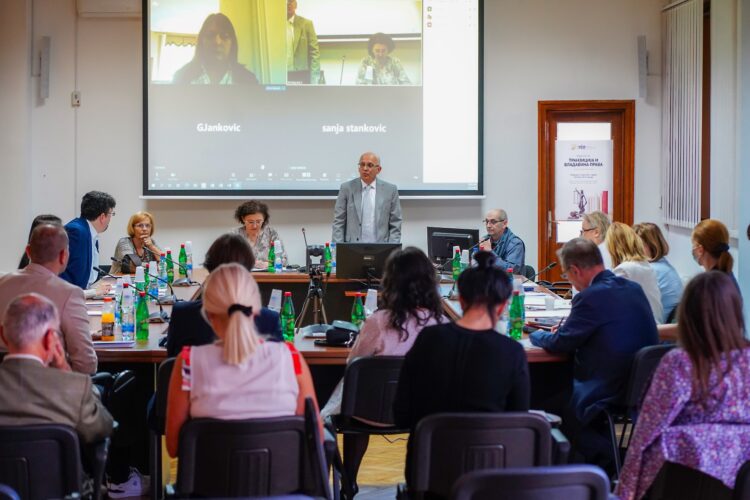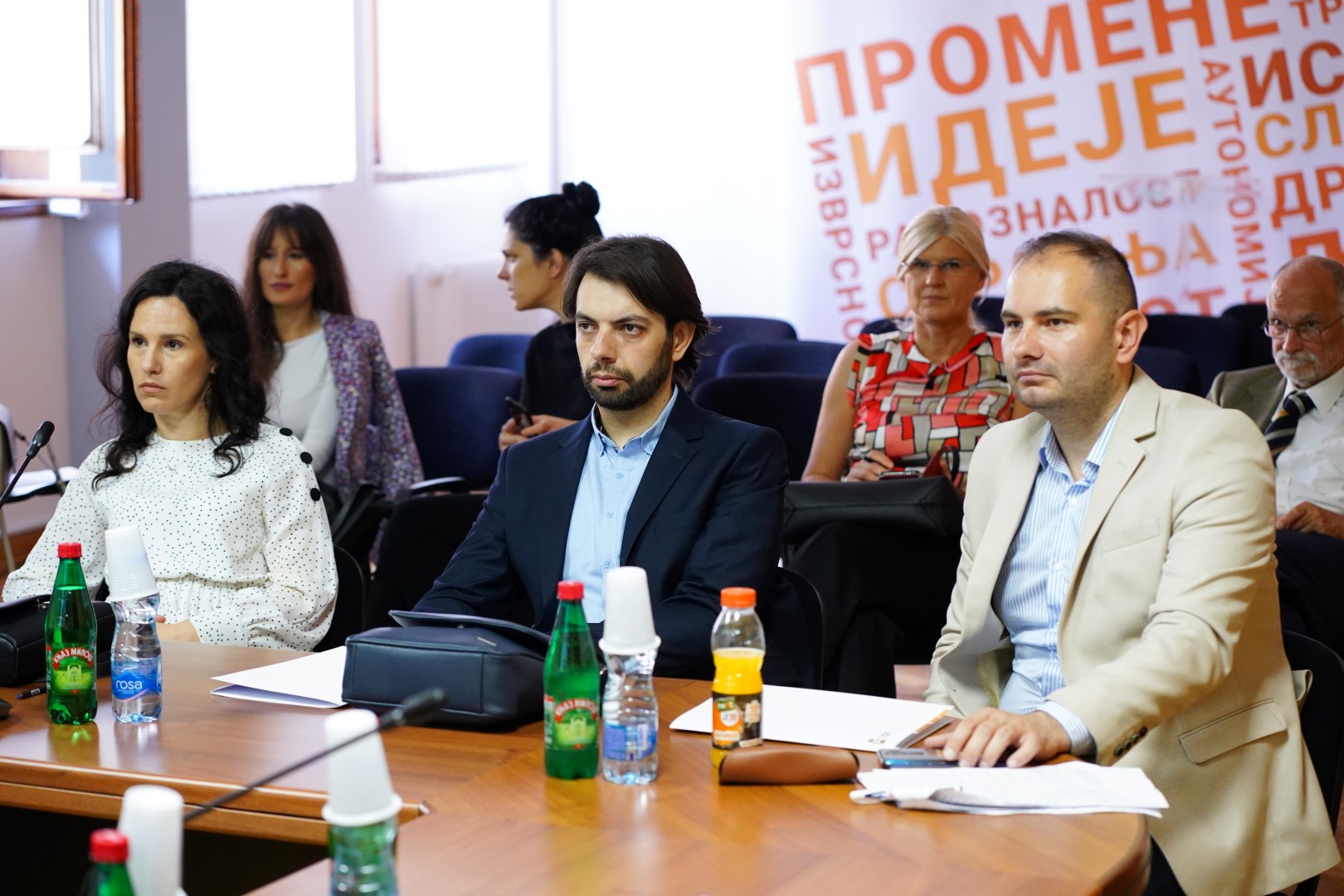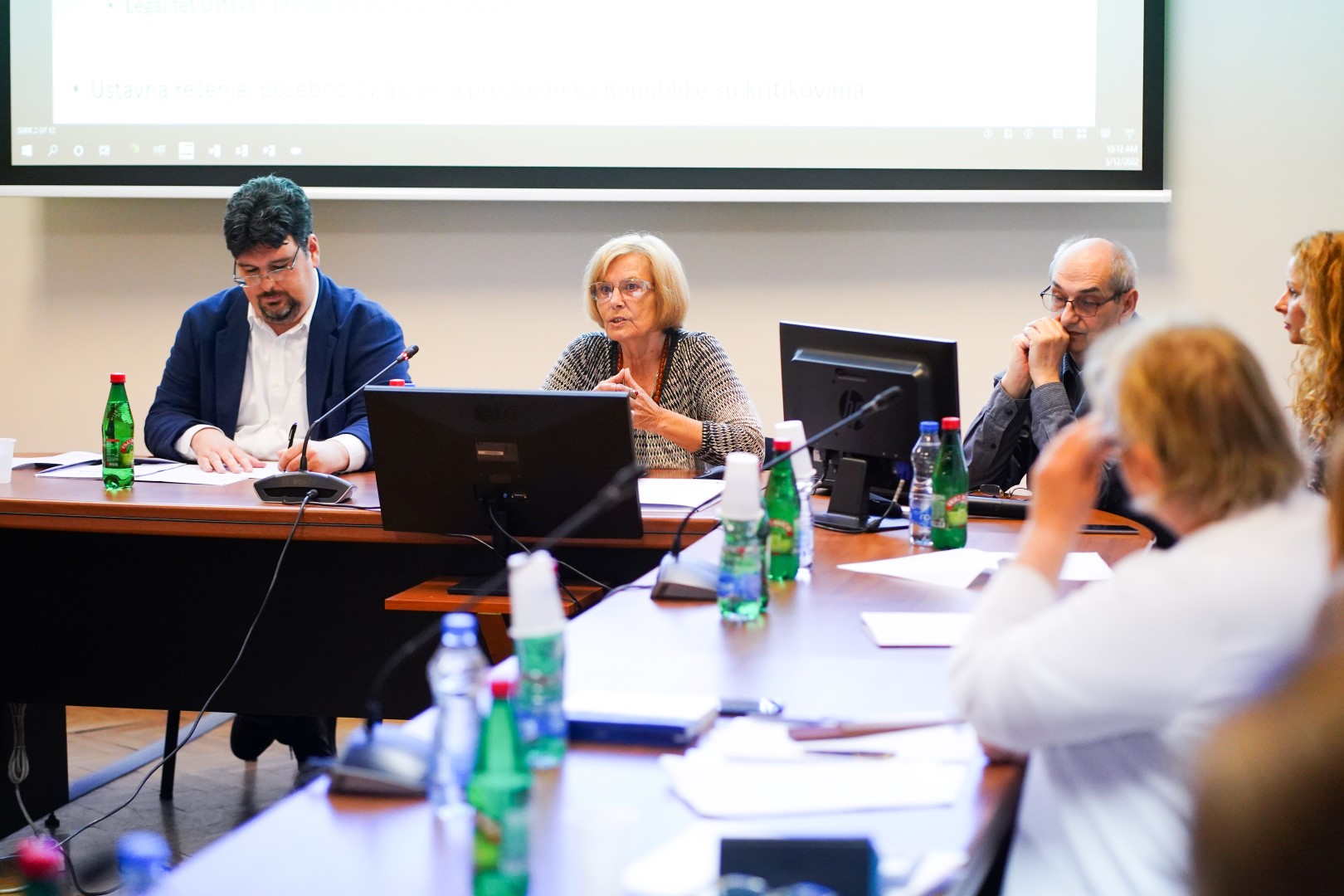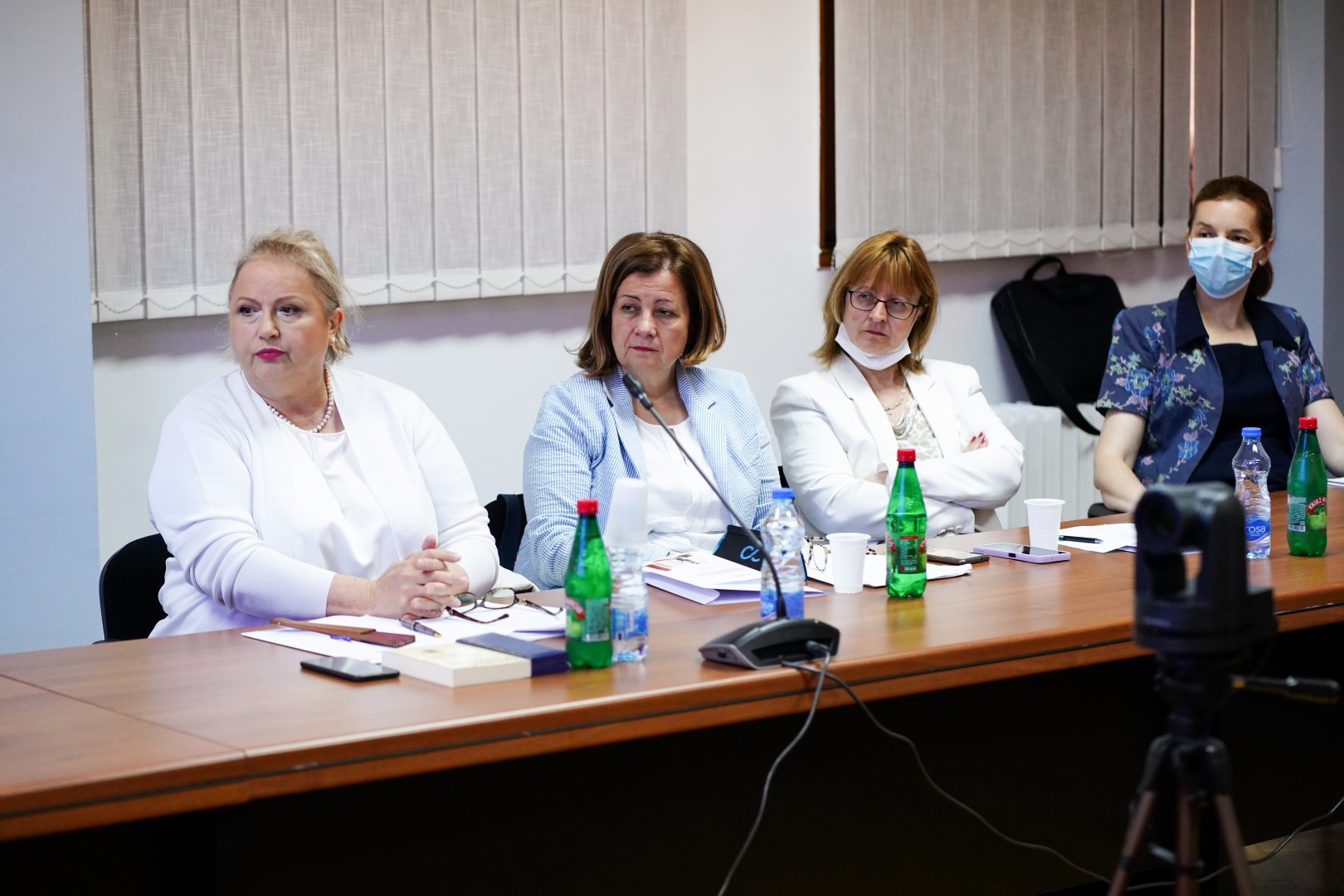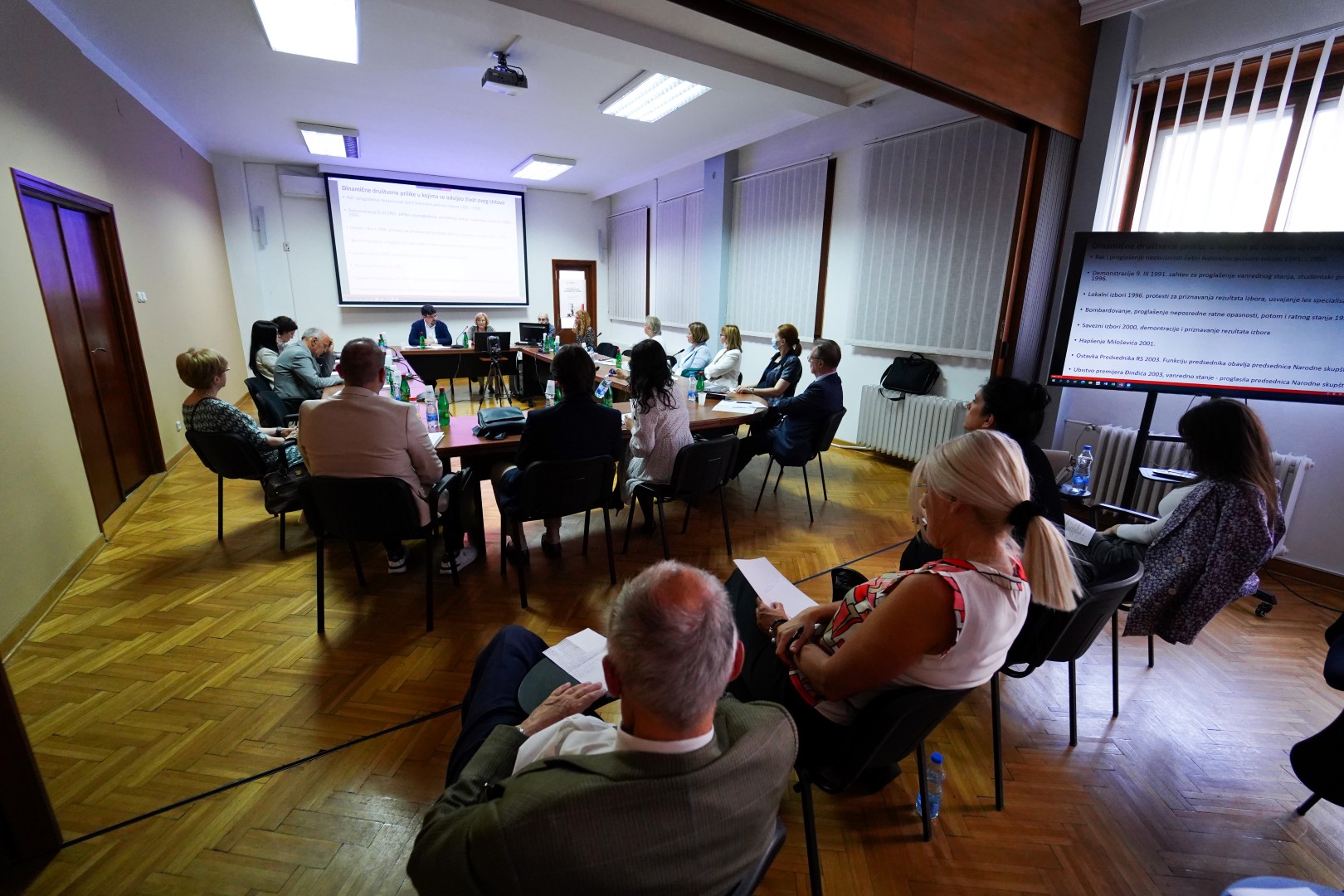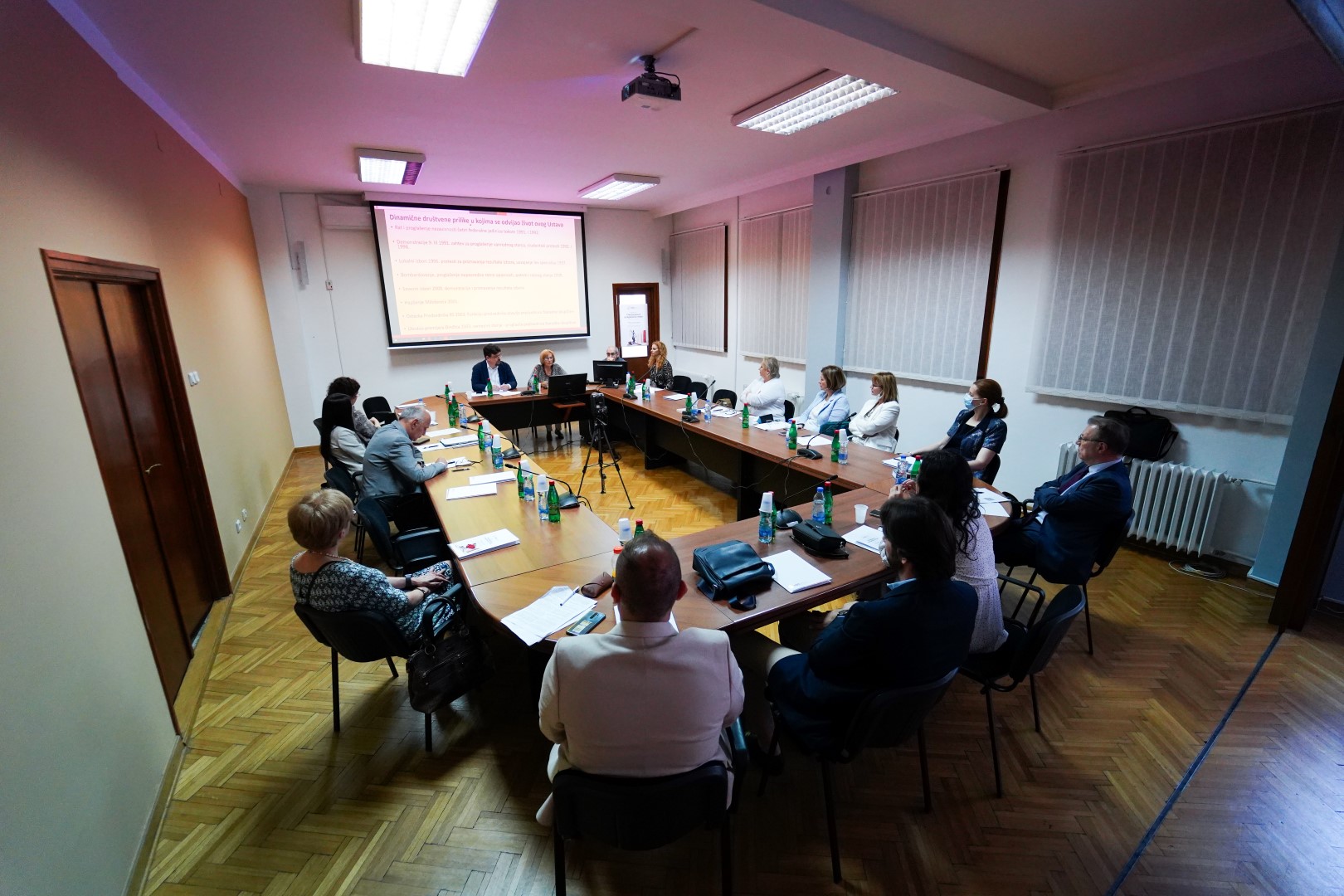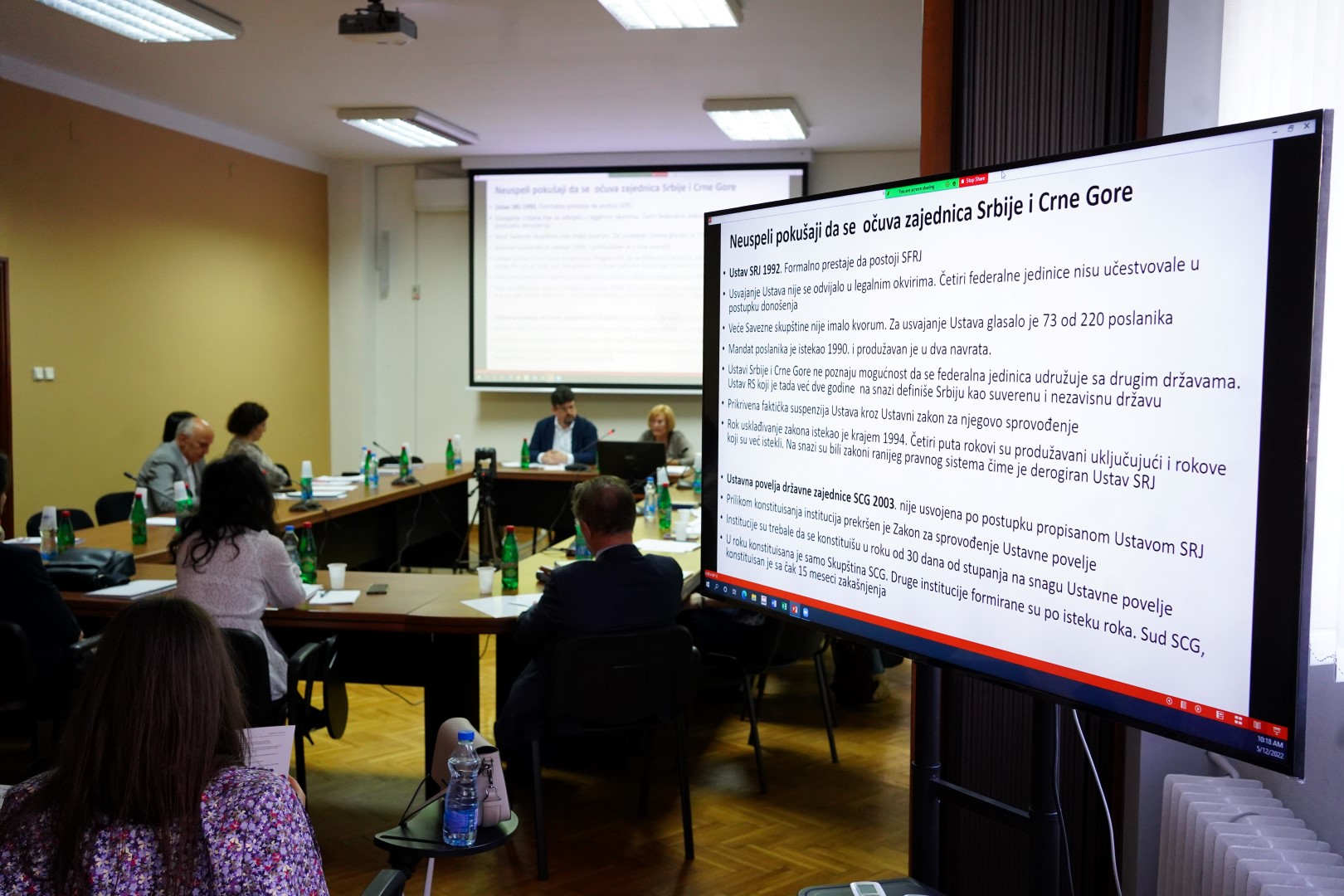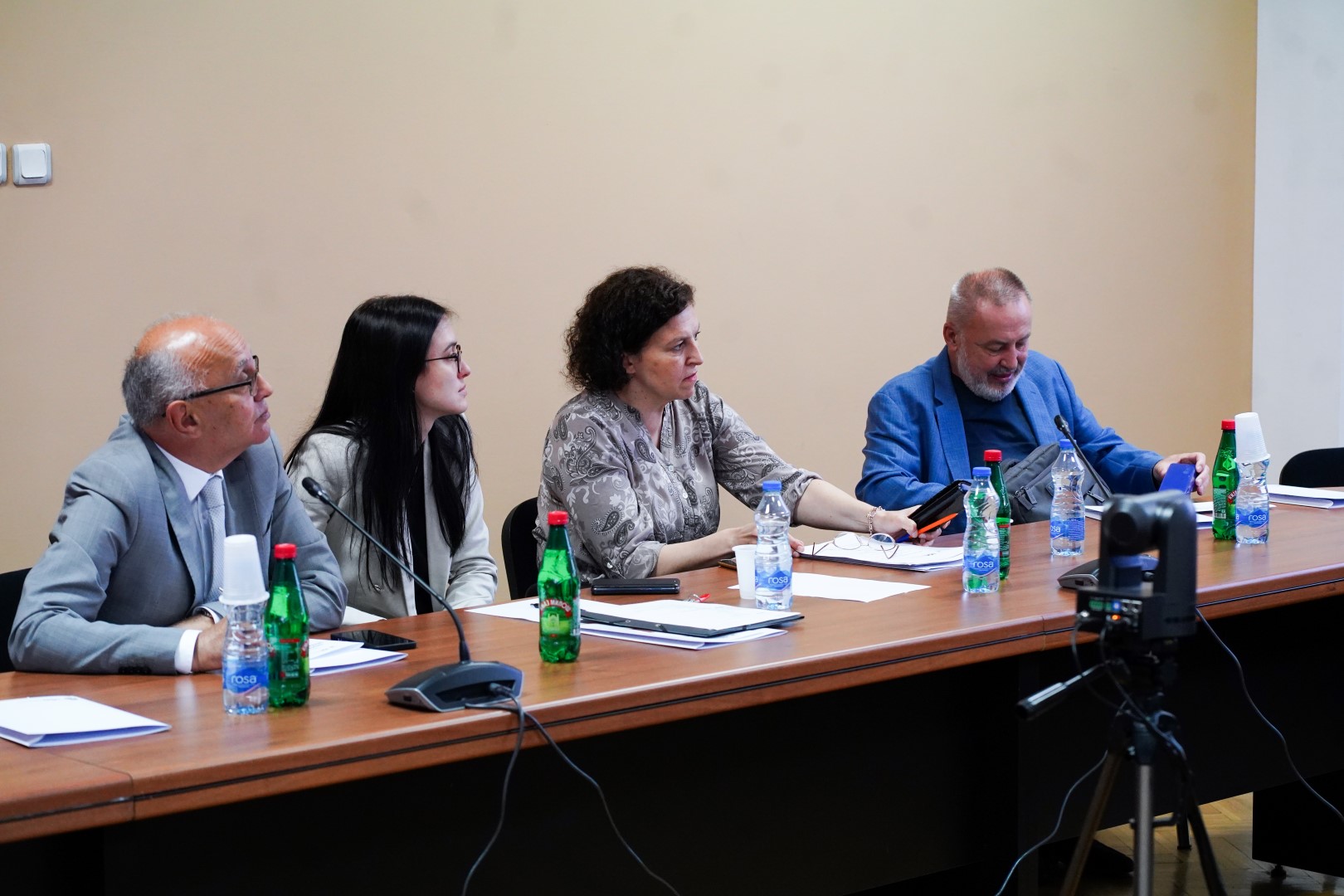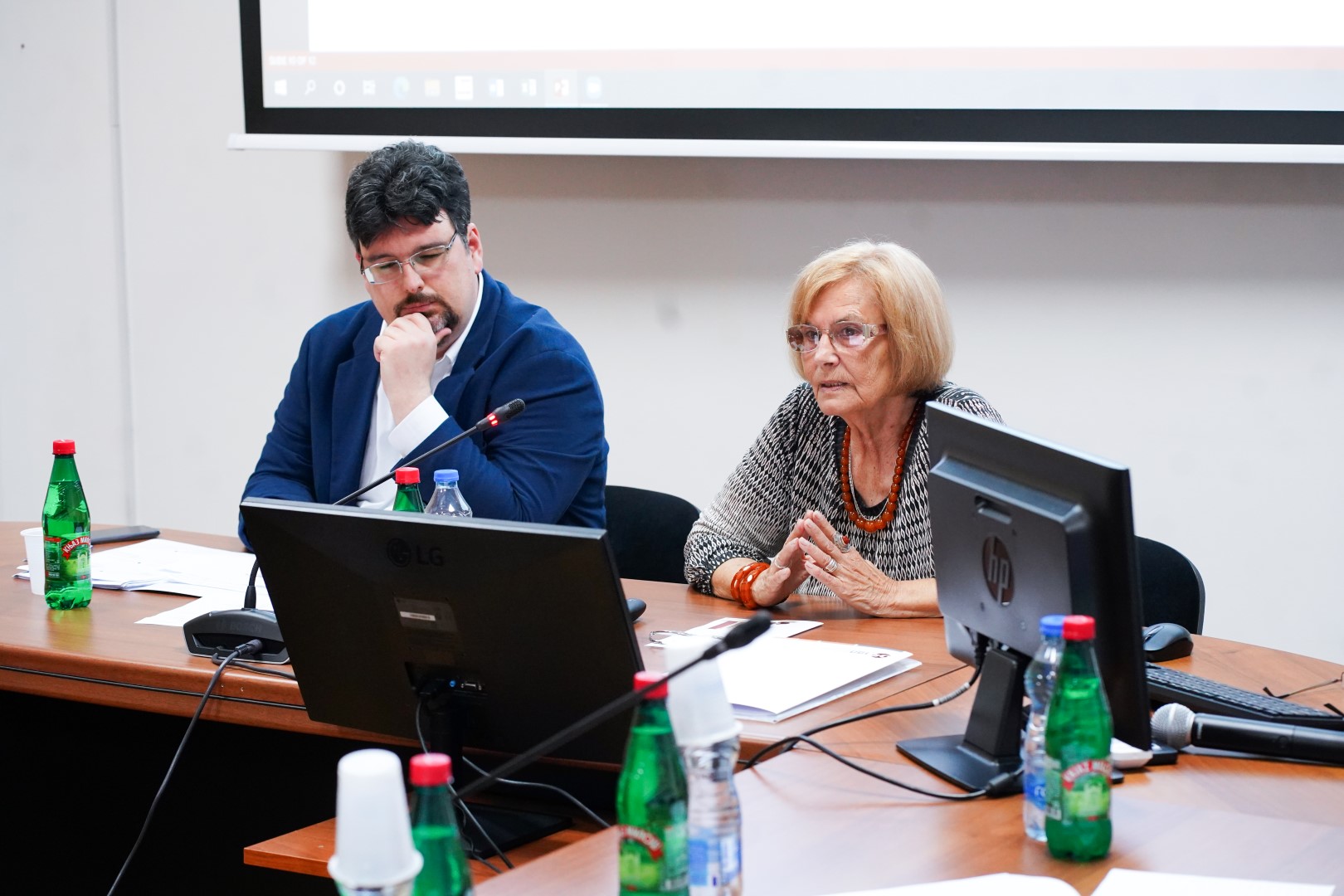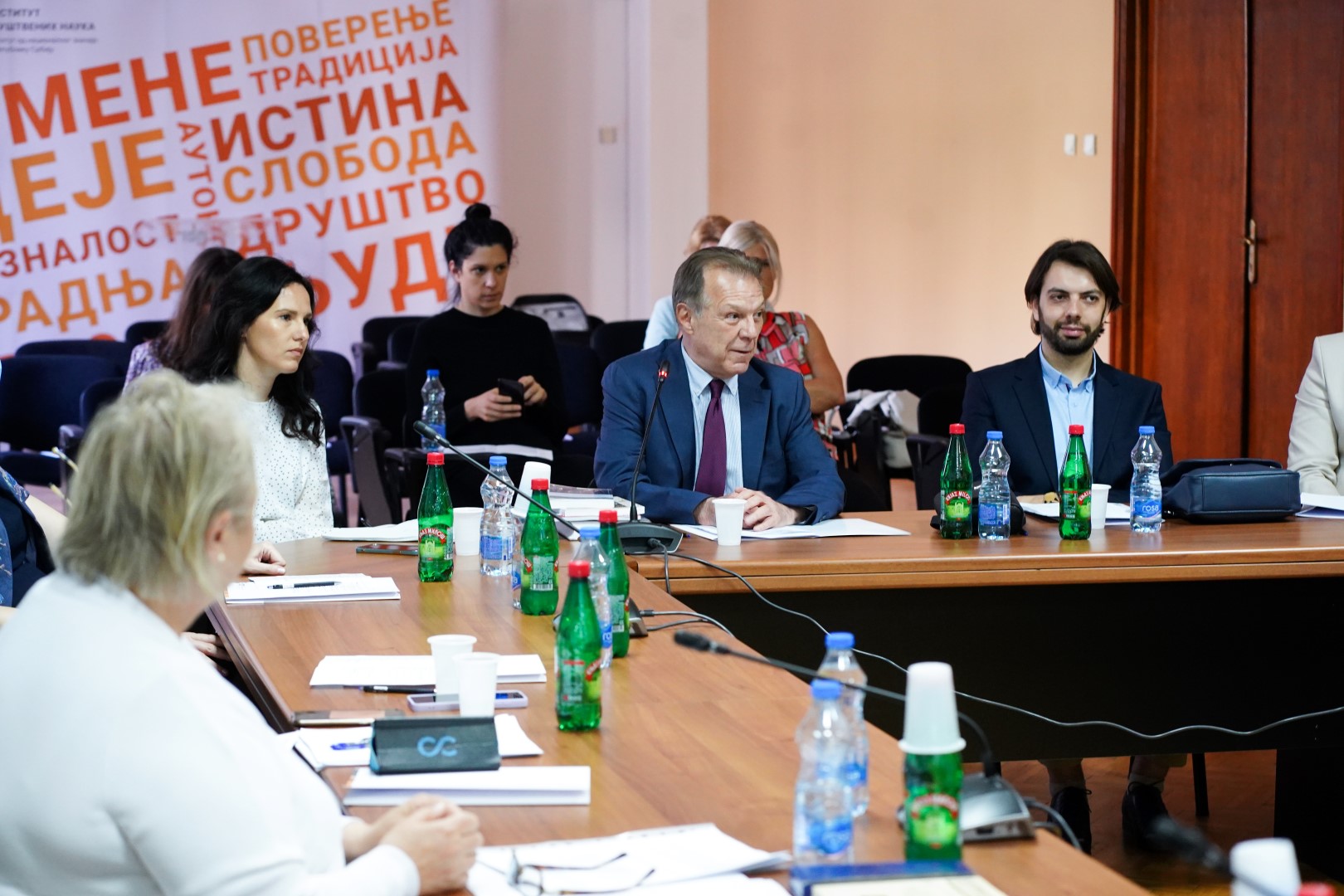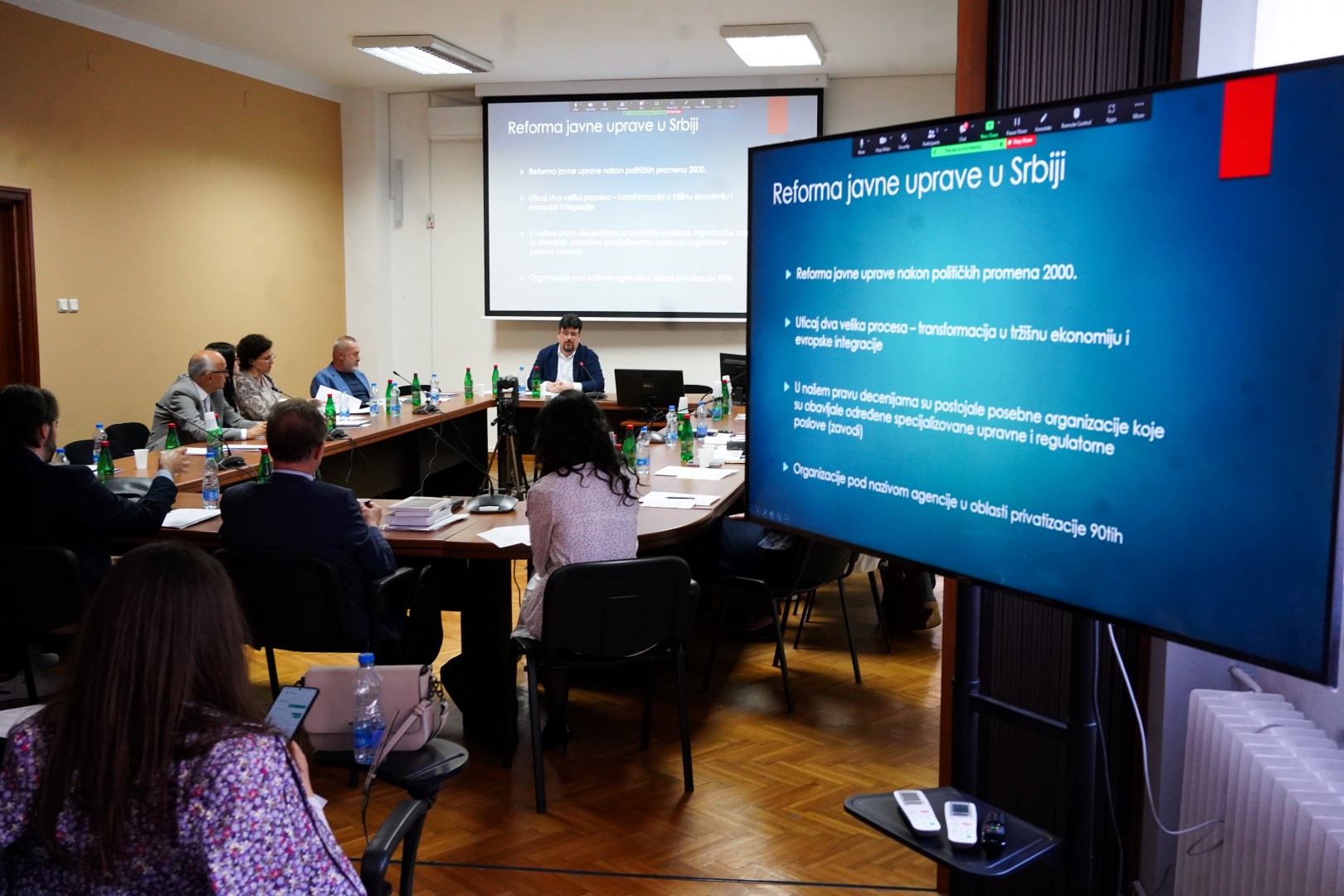On the occasion of the 65th anniversary of the founding of the Institute of Social Sciences (ISS), a round table “Transition and the Rule of Law” was held on May 12, 2022. It was organized by the Centre for Legal Research (ISS), as the first in a series of events to mark the anniversary. Prominent professors of law and political sciences, as well as representatives of the judiciary and researchers of the Centre for Legal Research took part at the round table. They have analyzed past and present transitional challenges in different areas of Law. The round table was opened by the director of the Institute of Social Sciences Goran Bašić, PhD, and the head of the Centre for Legal Research, Marta Sjeničić, PhD. Thereafter, the participants, in four panels, discussed the place, role and significance of law in the process of transition that began at the turn of the 20th and 21st centuries.
In the first session related to constitutional and administrative reforms, it was concluded that these are a consequence of specific political circumstances. Although there is some constitutional continuity, the process of adopting and amending the Constitution often remains controversial. Therefore, the domestic constitutional system is vulnerable while the constitutional identity is still being sought. The problems of regulating the administrative procedure and the dilemmas related to the adoption of the Law on Administrative Procedure were pointed out, as well as the challenges and advantages brought by the widespread establishment and use of public agencies as a model for the organization of administrative functions. In the area of property rights, it was concluded that a number of regulations have been enacted since the beginning of the transition process, but their consistent application in some areas has been lacking. In addition, the legal provisions did not fully respond to the needs of practice, which showed a kind of failure of the transition, especially since it is one of the important areas of functioning of society, state and law. On the other hand, the development of the business environment went in the direction of innovative solutions and harmonization with international and European standards, especially in the fields of corporate governance , as well as the development of the capital markets. The area of labor and labor relations, within the framework of the capitalist and neo-capitalist economic model, is characterized by continuous demands for social correction of the labor market. The flexibility of employment requires a redefining of traditional labor law institutes with the aim of realizing the idea of social justice, achieving the ideals of labor and social peace, as well as ensuring effective protection of economic and social rights. In the area of healthcare, it was pointed out that, in recent decades, radical reforms have been implemented, in a way that went from just the mere rules related to healthcare professions to the hyperregulation of certain areas in healthcare. In this regard, the stages of development of medical law in Serbia were pointed out, with a focus on the courts approaches to medical malpractice, where a certain fluctuation was found in terms of standardizing the burden of proof as well as exercising the right to compensation. The domestic social protection system is characterized by a holistic approach in exercising and protecting rights, deinstitutionalization, emphasizing flexibility in the provision of social protection services and pluralism of service providers on the one hand, and delays in adopting strategic documents and insufficient application of regulations on the other. The last session of the round table was dedicated to the judiciary and court procedures, and in particular the election of judges, members of the High Court Council, competencies and composition of courts, as well as mechanisms for exercising the right to trial within reasonable time, in accordance with European standards and requirements. Numerous doubts and challenges in the field of criminal and civil proceedings in the Republic of Serbia were pointed out, as well as the problem of frequent changes in both procedural and substantive laws. In conclusion, the participants agreed that the access to justice for all citizens remains the biggest challenge of the unfinished transition in almost all areas. The incompleteness of the system certainly calls into question legal certainty as a condition of the rule of law. Therefore, it is necessary to think about moving to a more orderly and systematic, constitutional, but also changes in other parts of the legal system.

